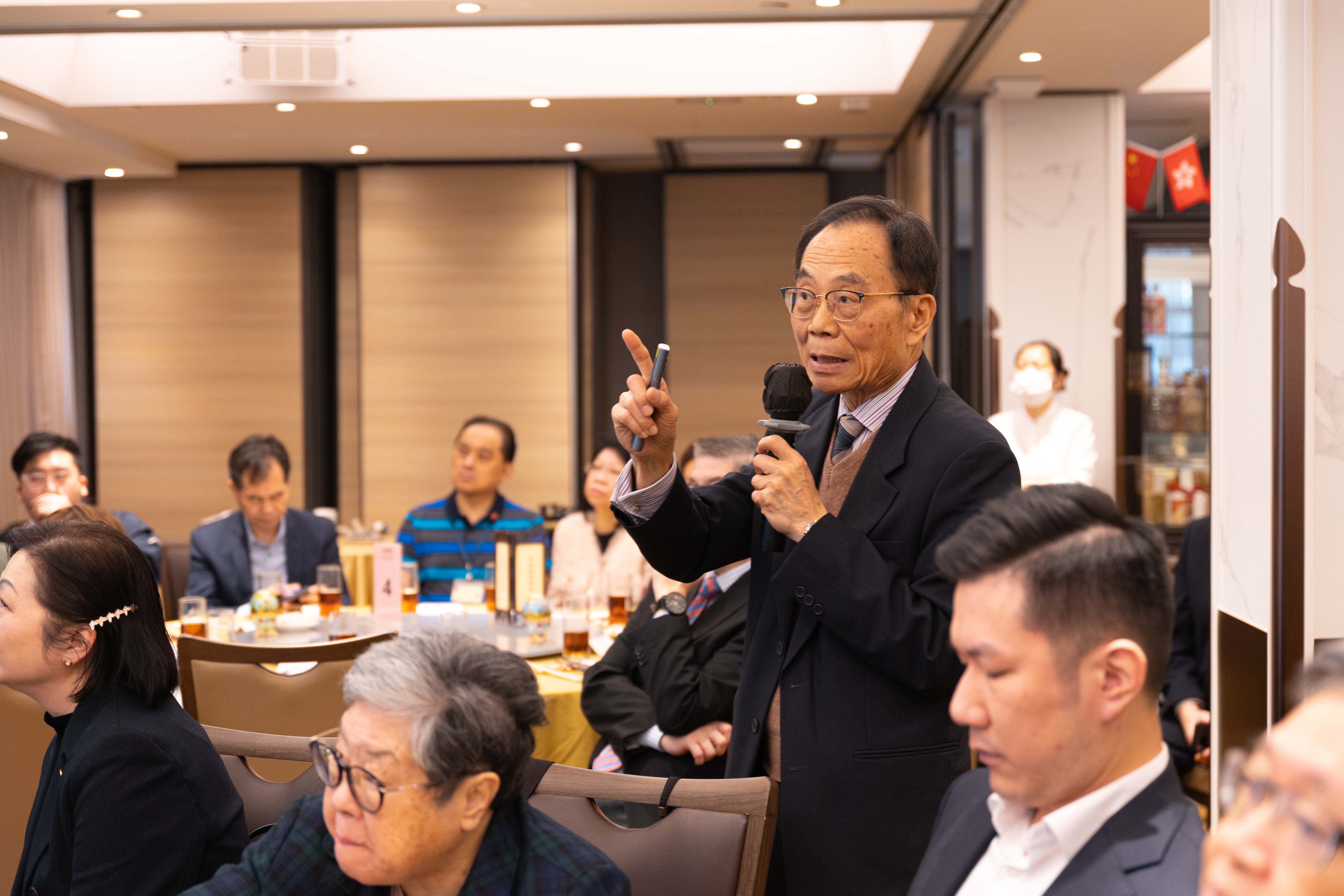20 February 2024, the Hong Kong Economic Association, together with Global Business Exchange (GBX) and Pan Sutong Shanghai-Hong Kong Economic Policy Research Institute of Lingnan University, jointly organized the "Housing Policy and Hong Kong Economy" seminar and luncheon, with about 70 participants attending. Mr. Victor Tai Sheung-shing, Under Secy for Housing, delivered speech about the government's work on housing policy. The government has made great efforts to increase housing supply and improve the quality of public housing. Mr. Tai mentioned that the government has established a task force to address the issue of subdivided units, set minimum standards for the living environment in such units and propose measures to crack down on those that do not meet the standards. In addition, after implementing rent control for subdivided units, the government will continue to strengthen law enforcement to protect the rights of tenants. Apart from addressing the issue of subdivided units, the government is also committed to increasing short-term supply, including 21,000 transitional housing units and 30,000 light public housing units, in order to provide residents living in poor conditions with options to improve their living environment.
Mr. Tai Sheung-shing, Under Secy for Housing
However, three economists, including Professor Wong Bo-lin from the University of Hong Kong, Professor Leung Ka Yui from City University of Hong Kong, and Professor Ho Lok Sang from Lingnan University, are concerned about the sustainability of the current policy. Professor Wong pointed out that over the years, the number of tenants eligible for public housing has remained at around 500,000, but the total number of tenants has increased by over 100,000 from 2006 to 2021, indicating an increasing proportion of higher-income households. This is because even with doubled rent, the amount paid is still significantly lower than market rent, and the living environment in public housing has been improving, giving tenants no incentive to give up their units. Professor Wong believes that if the rent for public housing is set at 10% of the tenant's income and increases with income rises, higher-income households will give up public housing, accelerating the process of tenants in subdivided units moving to public housing.
Professor Wong Bo-lin, The University of Hong Kong
Professor Leung Ka Yui provided a series of data from OECD countries, showing that housing issues are not unique to our city, but the phenomenon of "lying flat" is particularly common in Hong Kong. Many young people are not motivated to progress in order to meet the eligibility criteria for public housing. He also pointed out that Hong Kong's labour force participation rate has been declining on a yearly basis and has now dropped to 57.1%. This may be related to the fact that "lying flat" allows residents to meet the income requirements for public housing.
Professor Leung Ka Yui, City University of Hong Kong
Professor Ho Lok Sang argued that Hong Kong's housing policy has encouraged a culture of "lying flat," weakening the vitality of the Hong Kong economy. In comparison, during the period of Sir Murray MacLehose's governance from 1973 to 1982, the emphasis was on self-reliance and a lack of enthusiasm for welfare reform, and it was a remarkable golden decade. Even faced with oil crisis and the stock market's decline of over 90% in 1975, Hong Kong did not experience negative growth for ten years, and each rebound after a downturn was very strong. Professor Ho also pointed out that the sale of public housing units caused a decline of 5.9% in 1998, far exceeding Singapore's decline of 2.2%. After the introduction of the Tenants Purchase Scheme, the number of self-owned private housing units continued to fall. The same situation occurred after the implementation of “spicy move” in 2010, the Subsidised Home Ownership Scheme also declined. With a decrease in the supply of second-hand properties and smaller units, the price per square foot and rent skyrocketed.
Professor Ho Lok Sang, Lingnan University
Professor Ho Lok Sang suggested restoring the incentive for upward mobility, with Public and Subsidised Home Ownership Scheme flats being located in areas with lower land prices, while prime locations are left to the private market. Public housing could follow the model of Singapore, abandoning income and asset standards and setting the average price at eight times of the annual income.("eight times price") with an area of around 400 square feet for self-occupation only. This would reduce speculation," and wealthy households will not buy them, or if they do, they will eventually upgrade. The "eight times price" can generate substantial revenue for the government, while prime locations can be sold at higher prices, thereby increasing the vitality of the Hong Kong economy and relieving the fiscal deficit problem.
Speakers (From left to right: Prof. Wong Bo-lin, Prof. Ho Lok Sang, Mr. Tai Sheung-shing, Prof. Yu Siu-hung, Prof. Leung Ka Yui)
20 March 2024: Hong Kong Economic Association held the seminar and luncheon “Housing Policy and Hong Kong’s Economy”, in collaboration with Global Business Exchange (GBX) and Pan Sutong Shanghai-Hong Kong Economic Policy Research Institute"
Home > Past Events







